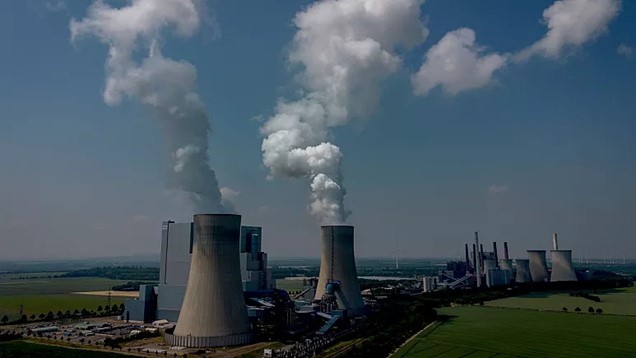Fossil fuels generated just 33% of the EU’s electricity in the first six months of this year.
Energy generated by fossil fuels in the EU hit a record low in the first half of 2023, a new report has shown.
In the first half of 2023, the 27 member states burned 17 per cent less fossil fuels for electricity than during the same period in 2022. The study from clean energy think tank Ember found that between January and June, fossil fuels generated just 33 per cent of electricity – their lowest-ever share of the EU’s power mix.





